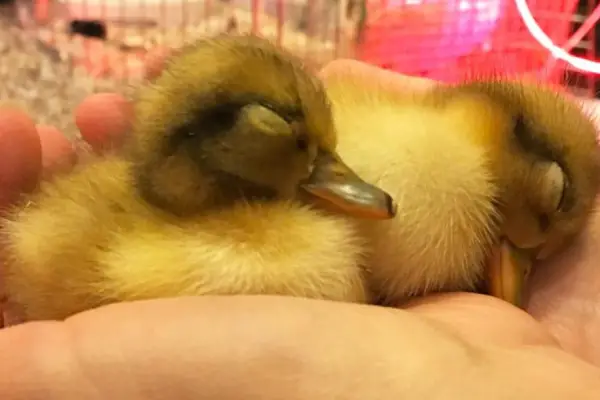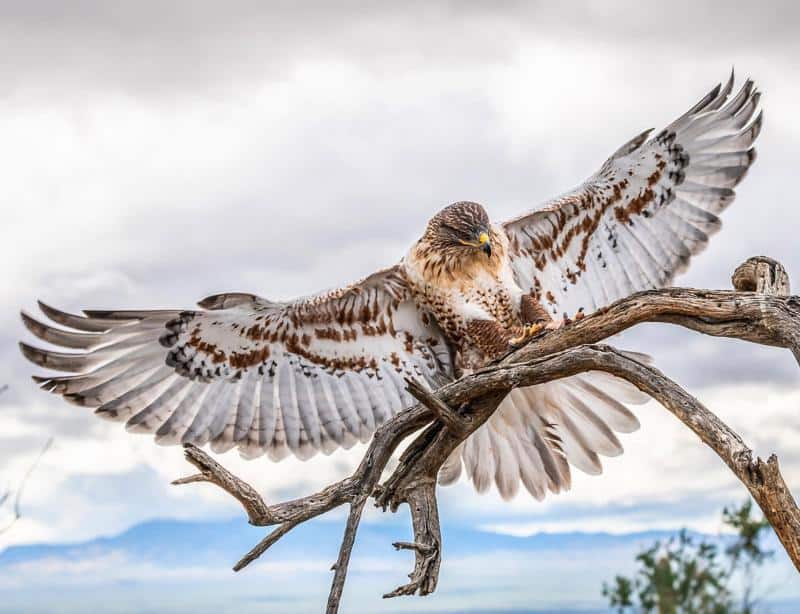If you went for a trip outdoors after dusk, you may have noticed that the birdsong that usually fills the night air is absent. The birds’ melodic tweets and chirps are an indispensible aspect of the day, yet they appear to cease speaking as nightfall approaches.
Discover the surprising causes of this phenomena, if you’ve ever wondered why birds cease singing when the sun sets.
Because of their circadian clock, which dictates that they sleep when it becomes dark outside, birds don’t sing at night. Additionally, birds remain silent and motionless until daylight due to a scarcity of insects, the fear of predators, and the need to preserve energy at night.
A Bird’s Daily Routine Is Determined by Circadian Rhythms
Birds’ intriguing daily habits are dictated by their circadian rhythms, which are internal clocks. These internal clocks are in tune with the environment’s natural cycle of light and dark. Birds have a biological need for both awake and sleep, just as people do.
For this reason, you may have noticed that birds prefer to relax or sleep at night and are most active during the day.
Birds’ internal clocks are in harmony with the light.
The suprachiasmatic nucleus (SCN), a specialised brain region seen in birds, serves as their internal clock. The photoreceptor cells in the eyes, which are responsible for detecting light and dark, send signals to the SCN.
The SCN receives information from the photoreceptor cells when they sense light, and it uses those signals to control the physiological functions of the bird, including its circadian rhythm.
Birds are quite busy throughout the day when there is lots of light when the sun is up. They do a variety of tasks, such creating nests, protecting their areas, and going on food hunts. Birds become less active at night when darkness descends and light levels drop, seeking cover to rest and store energy.
Singing requires a lot of energy.
Birds need a lot of energy to sing, which is one reason they don’t chirp at night. The coordination of several muscles involved in sound production is necessary for singing. It also demands a substantial energy and breathing expenditure.
For birds to live and be healthy overall, they must save their energy throughout the night.
Singing at night may also draw the attention of rivals or predators. Birds mark their territory, communicate with one another, and entice mates with their songs. Singing at night might draw attention from nearby predators or stimulate competition from other nearby birds.
For this reason, it is safer for birds to be silent and use less energy at night.
It’s crucial to remember that although most birds remain quiet at night, there are those that are not. Owls and nightjars are examples of nocturnal birds that have developed to be active at night and may vocalise during this period.
They are able to communicate and travel in dim light because to their special adaptations.
Birds’ extraordinary adaptations and survival techniques are better understood when we are aware of their daily routine and behaviours. Therefore, keep in mind birds’ internal clocks and the energy they need to store for their day tasks the next time you wonder why they don’t sing at night.
When There’s No Food, Singing Is Meaningless
The absence of food is a major factor in why birds don’t sing at night. Birds aggressively seek for insects, berries, and seeds throughout the day in order to survive. But many of these food sources become sparse or nonexistent at night.
Birds lose interest in singing when there isn’t enough food to go around since it takes energy and draws attention.
In the evening, insects are dormant.
Insects are one of the main food sources for birds. Because they are a rich source of nutrients and proteins, insects are vital to their existence. Sadly, most insects are less active and more scarce at night, which is bad news for birds.
A lot of insects are diurnal, which means they spend the day active and the night sleeping or hiding. Because there aren’t many insects around, birds can’t sing at night because they have no food.
During the day, singing aids in territorial defence and attracts mates.
Birds’ need for singing to entice mates and defend territory is another reason why they sing more throughout the day. let make their presence known and let prospective mates know that they are available, male birds often sing.
Birds also use singing to indicate and protect their area from other members of their own species. They need to engage in this territorial behaviour in order to survive and successfully reproduce.
It’s also important to remember that certain bird species, including nightingales and owls, are known to vocalise at night. These birds have developed unique vocalisations appropriate for the nighttime since they are nocturnal creatures.
For most bird species, however, it is more effective to keep their vocal efforts for the daytime when they may be more useful and to store their energy during the night when food is limited.
You may visit websites like Audubon or Cornell Lab of Ornithology to learn more about the vocalisations and behaviour of birds.
Birds are Silenced After Dark by the Risk of Predators
Ever ponder why, when the sun sets, birds cease tochirp? It turns out that our feathery companions’ ability to remain silent after dark is mostly dependent on the possibility of predators.
Nighttime hawks hunt for chirping birds.
Birds use their beautiful songs to attract mates, protect their territory, and communicate with one another throughout the day. But darkness brings with it a fresh set of difficulties. Owls, bats, and night-hunting animals are among the nocturnal predators that are active at night.
Because of their superior hearing and eyesight, these predators can find their victims more easily.
Birds lessen their likelihood of being discovered by these nocturnal predators by being quiet. In essence, singing loudly at night would be like yelling, “Here I am!” to would-be predators. Therefore, birds must keep their melodies to themselves as night comes in order to survive.
You may get comprehensive information and eye-catching photos regarding nighttime predators and how they affect bird behaviour by visiting National Geographic.
Quietness allows birds to conceal themselves and save energy.
Aside from deterring predators, maintaining silence throughout the night aids with bird hiding and energy conservation. Birds may conceal themselves in their environment and make it more difficult for predators to identify them by staying quiet.
For ground-dwelling birds that depend on their ability to remain concealed to thrive, this camouflage is especially crucial.
Birds also need to save energy since they must refuel their energy stores in order to carry out their daily activities, which include mating, hunting, and territorial defence. Since singing takes a lot of energy, birds that don’t sing at night may save their energy for other important activities.
Check out the studies done by the Audubon Society if you’re interested in learning more about the energy-saving techniques used by birds. Their research sheds important light on the intriguing world of birds and their means of survival.
Final Thoughts
You’ll understand why the birds have gone silent after dusk the next time you’re out for a stroll in the evening and you notice the absence of the symphony of birdsong. Their nightly stillness is a result of their internal clocks, the absence of insect food sources, and their need to avoid predators after dusk.
But worry not—your feathered companions will welcome the day with happy tweets and chirps as soon as the sun peeps over the horizon.





